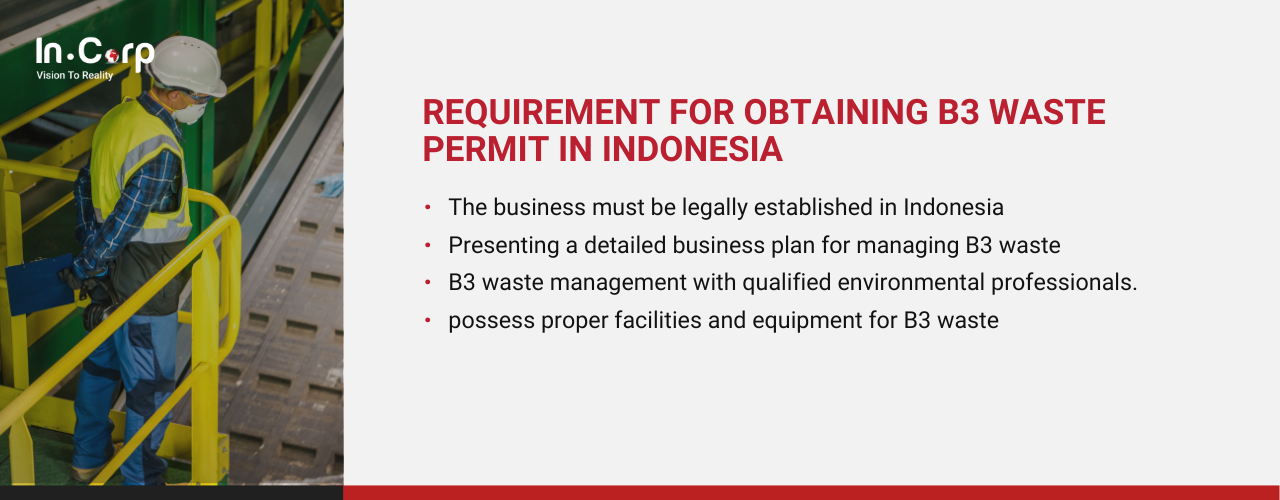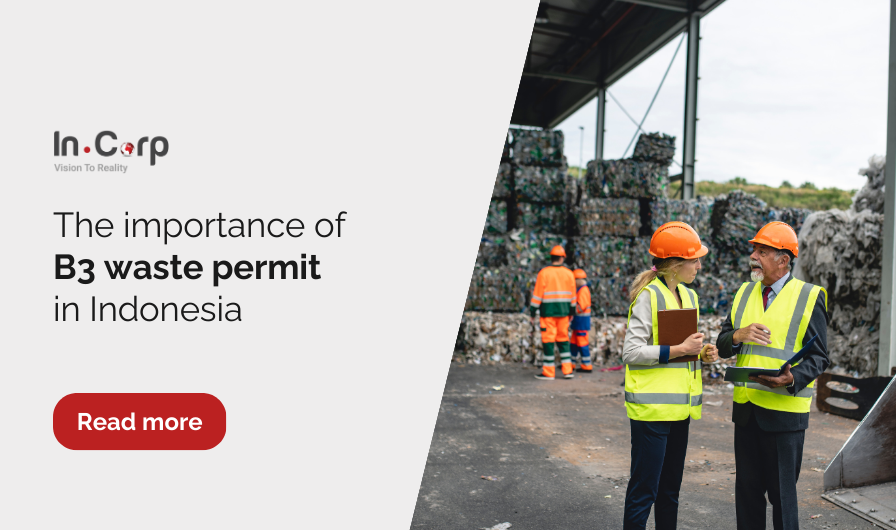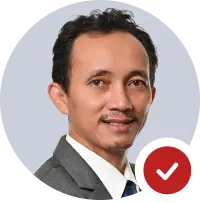In today’s world, environmental responsibility is no longer just a buzzword; it’s an essential component of sustainable business operations. In Indonesia, managing hazardous and toxic waste, or B3 waste, is a critical aspect of environmental protection, and the B3 waste permit plays a pivotal role in regulating its disposal and handling.
Understanding the significance of B3 waste permit
The B3 waste permit, officially known as Izin Pengelolaan Limbah Bahan Berbahaya dan Beracun, is a mandatory legal requirement for businesses in Indonesia. The company must obtain this type of license if the business generates, handles, or disposes of B3 waste materials. This permit is a testament to a company’s adherence to environmental regulations and commitment to responsible waste management practices.
The issuance of B3 waste permits falls under the purview of the Ministry of Environment and Forestry (KLHK), reflecting the government’s dedication to promoting sustainable waste management strategies. By obtaining and maintaining this permit, businesses can demonstrate their environmental stewardship and contribute to a healthier ecosystem.
B3 waste permit requirements

To secure a B3 waste permit, commercial facilities in Indonesia must fulfill specific requirements outlined by regulatory authorities. These requirements are meticulously detailed in Government Regulation No. 101 of 2014 concerning the Management of Hazardous and Toxic Materials. Here’s a summary of the general conditions for obtaining a B3 waste permit in Indonesia:
1. Legal registration
The business must be legally registered and established in Indonesia.
2. Comprehensive business plan
A detailed business plan outlining the company’s approach to safely and responsibly managing B3 waste must be presented.
3. Qualified environmental team
The company must demonstrate access to qualified environmental professionals capable of overseeing B3 waste management practices.
4. Adequate facilities and equipment
The business must possess proper facilities and equipment specifically designed for storing, transporting, and treating B3 waste.
In addition to these general requirements, there are specific requirements tailored to the type of B3 waste generated and the activities undertaken by the business. For instance, if B3 waste storage is involved, a secure storage facility equipped with leak and spill prevention measures is mandatory.
For B3 waste transportation, specially designed vehicles with spill containment systems are essential. Finally, the business must have a licensed treatment facility authorized to handle the specific B3 waste generated.
Navigating the B3 waste permit application process
The B3 waste permit application process in Indonesia can be intricate and time-consuming. To ensure a smooth and successful application, initiating the process early and collaborating with a qualified consultant is highly recommended. Here’s a general overview of the application process:
- Completing form completion
- Submission of application
- Application fee payment
- Review and information requests
- Permit issuance
Ongoing obligations after permit issuance
Obtaining a B3 waste permit is not the only responsibility regarding environmental concerns. Permit holders must fulfill their ongoing obligations to ensure continued compliance with regulations. This includes maintaining and updating the ecological management system regularly.
Facilities and equipment need to undergo regular inspections to avoid any potential hazards. Additionally, it is mandatory to submit annual B3 waste management reports to the environmental agency to ensure proper waste management practices are followed.
The significance of B3 waste permit compliance
Non-compliance with B3 waste regulations in Indonesia can lead to severe consequences, including hefty fines, potential imprisonment, and even business closure. Therefore, adherence to these regulations is paramount for businesses operating in Indonesia.
Types of B3 waste service in Indonesia
Indonesia’s comprehensive regulatory framework for waste management encompasses a system of waste permits tailored to businesses and organizations that generate B3 waste. These permits aim to ensure the safe and environmentally sound handling of B3 waste.
B3 waste service for commercial buildings
Commercial buildings such as hotels, malls, and apartments must obtain a B3 waste permit if they generate more than 50 kg of B3 waste annually. This permit authorizes them to collect, transport, and dispose of their B3 waste in compliance with Indonesian regulations.
B3 waste service for schools, retail stores, and offices
Schools, shops, and offices must secure a proper license if they generate more than 20 kg of waste annually. This permit mirrors the one required for commercial buildings but includes specific requirements for handling waste from educational settings.
B3 waste Service for distributors and industry
The B3 waste permit for distributors and industry has strict rules to ensure that hazardous waste is handled responsibly. Distributors and industrial facilities must use effective methods to treat B3 waste and make it less dangerous before disposal.
This type of waste often requires special disposal techniques to prevent environmental harm. Distributors and industries must keep detailed records of how much B3 waste they generate, how they treat it, and how they dispose of it. This helps to ensure that they are transparent and accountable.
Obtaining the appropriate B3 waste permit for compliance
By securing the appropriate permit, distributors and industrial facilities in Indonesia can demonstrate their commitment to environmental stewardship and fulfill their legal obligations. Obtaining the correct license ensures that waste is handled safely and environmentally responsibly, minimizing the risk of harm to human health and the ecosystem.
Obtain environmental permit with InCorp Indonesia
Navigating the complexities of B3 waste permit acquisition can be challenging. InCorp Indonesia offers comprehensive assistance in obtaining business licenses and environmental permits. Our team of experts guides the process, ensuring compliance and streamlining permit acquisition. Click the button below to start.
Get in touch with us.
What you'll get
A prompt response to your inquiry
Knowledge for doing business from local experts
Ongoing support for your business
Disclaimer
The information is provided by PT. Cekindo Business International (“InCorp Indonesia/ we”) for general purpose only and we make no representations or warranties of any kind.
We do not act as an authorized government or non-government provider for official documents and services, which is issued by the Government of the Republic of Indonesia or its appointed officials. We do not promote any official government document or services of the Government of the Republic of Indonesia, including but not limited to, business identifiers, health and welfare assistance programs and benefits, unclaimed tax rebate, electronic travel visa and authorization, passports in this website.



